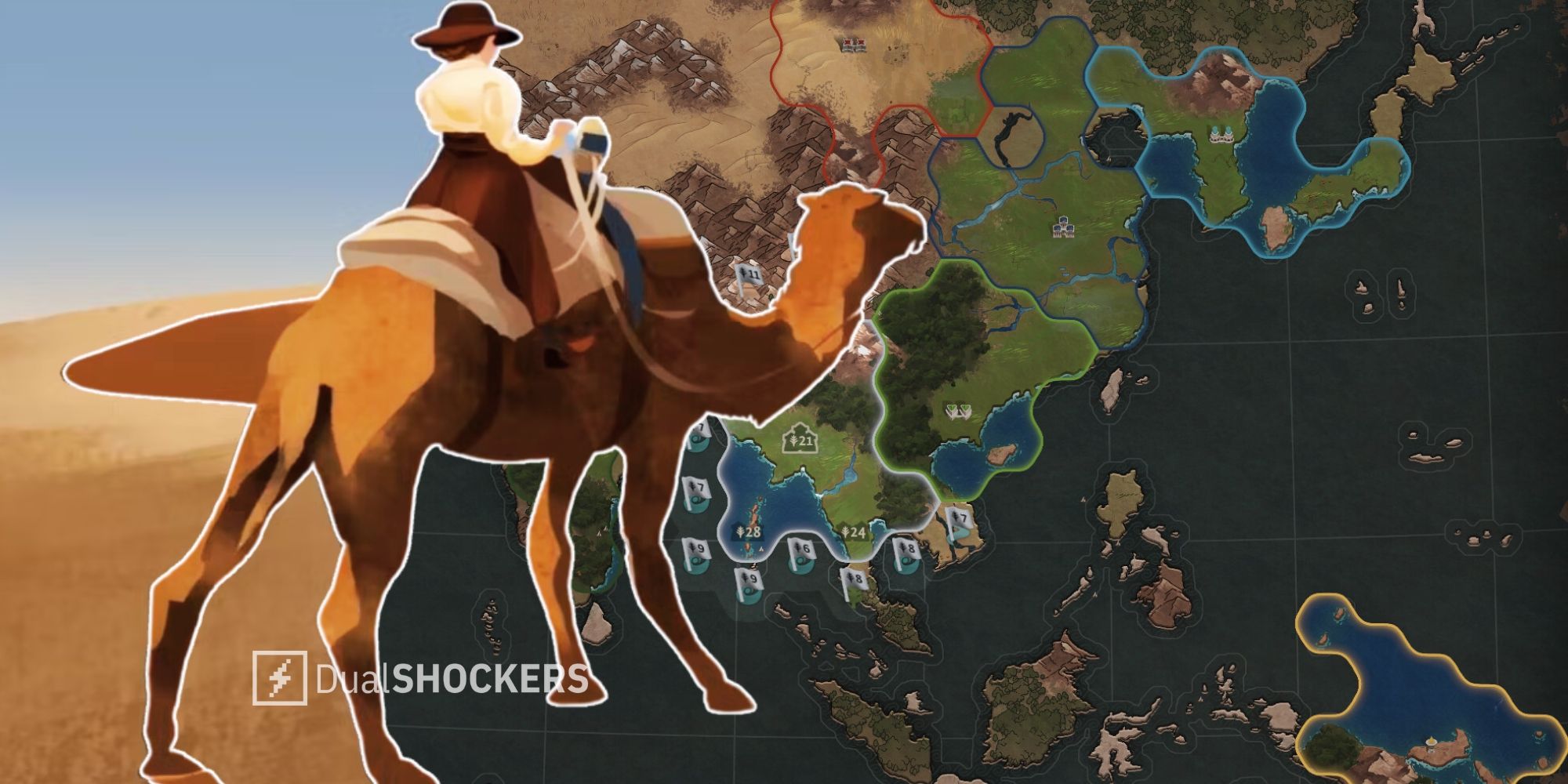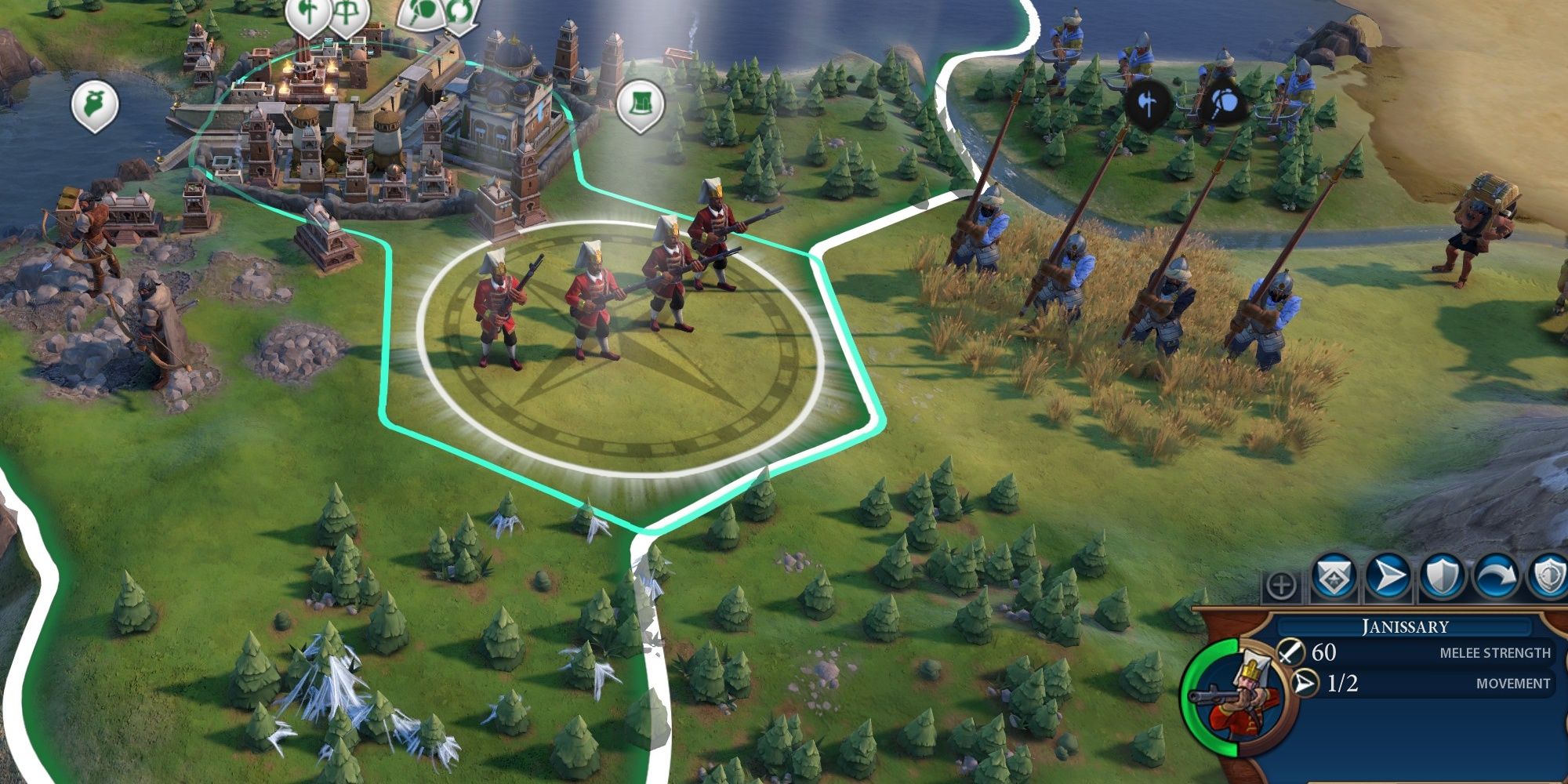I'm a big 4X fan, and in my time, I've played and loved some of the best the genre has to offer. From Civilization to Stellaris, to Endless Legend and Age of Wonders, I've played most of the big names and had a lot of fun doing so. There is, however, a problem common to almost every 4X game I've played, some to a greater extent than others, but it's almost always there in some form.
Some of you 4X enthusiasts might already know what I'm going to say, but for those of you who don't, let me ask you a question: Have you ever been playing a board game, like Monopoly, say, and realized about halfway through that you already know who's going to win, and that there's nothing you can do about it? Sure, if someone makes a truly catastrophic mistake, things could turn around, but most of the time, it's clear who is going to emerge victorious long before the game is over.
This happens because Monopoly, like most 4X games, is about exponential growth. The richer or more powerful you get, the easier it becomes to get richer and more powerful. This makes it almost inevitable that, at some point, one of the players is going to start to pull ahead faster and faster. This can be especially bad when (as in most strategy games) one player's gains are to the detriment of all others. To go back to Monopoly for a second, there's only one Mayfair (that's Boardwalk for all our North American readers), and once someone has built a few properties on it, there's not really a way for anyone else to match that.
So what can be done? The crisis events in Stellaris are an interesting way to shake up the latter stages of a game, but they don't solve the problem directly. Sure, there's a chance that whoever's currently in the pole position will be creamed by the Great Khan or the Prethoryn Scourge, but it's equally possible for players lagging behind to be obliterated at the same time. The crisis events are just an injection of pure chaos as opposed to a more finely tuned Mario-Kart-Blue-Shell kind of solution.
Honestly, I'd actually been burned out on 4X games for just this reason for quite a while. It's partly because I just don't have the time to get good enough for high-level play, but I found that most of the time, I would either win very easily or have to slog my way through hours of a game I knew I'd lost a long time ago.
Step forward July's Humble Choice and Ozymandias, a tiny little game by The Secret Games Company that promised to be a 4X for the man on the go that doesn't skimp on strategy, a proposition that immediately caught my eye. I gave it a try, not sure what to expect, and I was very pleasantly surprised.
The big boast of Ozymandias is that it cuts out all the usual 4X busy work; you don't need to organize your citizens, micromanage your armies, or pore over complicated tech trees, and the games only take about an hour to complete. Victory is decided by whichever player can claim a given number of "crowns" first, crowns being awarded for the size and population of your empire, your overall wealth, number of armies, and various other things.
It absolutely is the 4X experience stripped down to its bare bones, but you know what? It works. Games are fast-paced enough that the old monopoly problem that plagues so many other games just doesn't happen. It's a solution so simple I would never even have considered it: just make the games so fast that players won't have time to feel as though their cause is hopeless. As soon as one game goes down the pipes, bam! You're into the next one. It's the same kind of smart thinking and obvious-in-retrospect solution employed by Songs of Conquest with its player-controlled AI armies.
Of course, all that means nothing if the game itself isn't much fun, but somehow, Ozymandias manages to squeeze a hell of a lot of strategy and tension into its minuscule maps. The game is (at least in the early stages) based around placing flags on the map in order to claim territories for your empire. Each hex is designated as one of a handful of different terrain types—grassland, desert, plains, river, etc.—and you can buy upgrades that increase your yield of the three major resources (food, technology, and money) from each one. The key to victory is in making sure you are developing and acquiring the right terrain, and ensuring your empire is maximally efficient.
Once you have enough food, you can start to build new cities, the running of which is almost entirely automated. You decide where they go, and they grant buffs to your armies and increase your population, but there's no civil engineering and no politics or diplomacy options. Cities are more for defensive strategy and increasing your overall population, one of the best ways to get the all-important crowns.
It's the way Ozymandias handles conflict that really impressed me though. There are only two types of units—armies and fleets—and each exerts pressure on an enemy's territory when placed on the borders of a rival. The way your unit's strength is determined is the interesting bit. There are no perks or new weapons to unlock; it's all about a fourth resource called power.
You can allocate your budget per turn to the generation of food, technology, and power, and making sure the three are in harmony is extremely important. There are also upgrades you can purchase that increase your power in certain types of terrain—handy if you happen to be fighting a desert war or are facing an invasion via the sea. I like this because it means warfare is all about careful planning and positioning, and it feels like it integrates smoothly with the rest of the mechanics.
I think that's why Ozymandias works so well. It isn't just a dumbed-down 4X game, offering shallow mimicry of all the genre's established mechanics. It takes the fundamentally fun elements of a 4X and synthesizes them into one streamlined whole. The entire game is basically one big balancing act. You have to make sure that your kingdom is efficient and functioning so that you can spread and conquer the world, and all that in less than 60 minutes.
The older I get, the less time I seem to have, and games like Diablo 4 just don't fit my schedule anymore. Thank God for little gems like Ozymandias that let me live out my dreams of global domination over the course of one lunch break.




